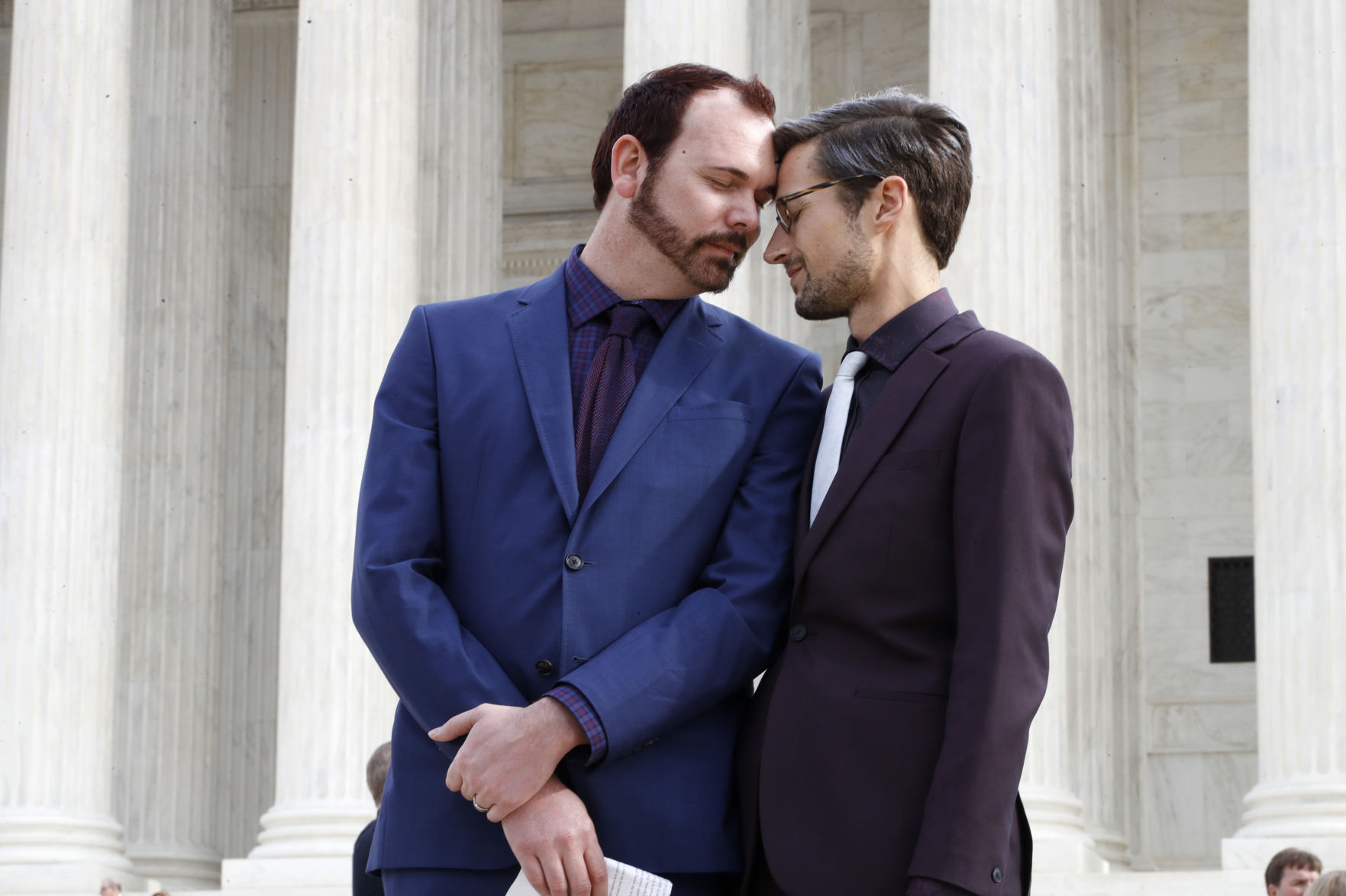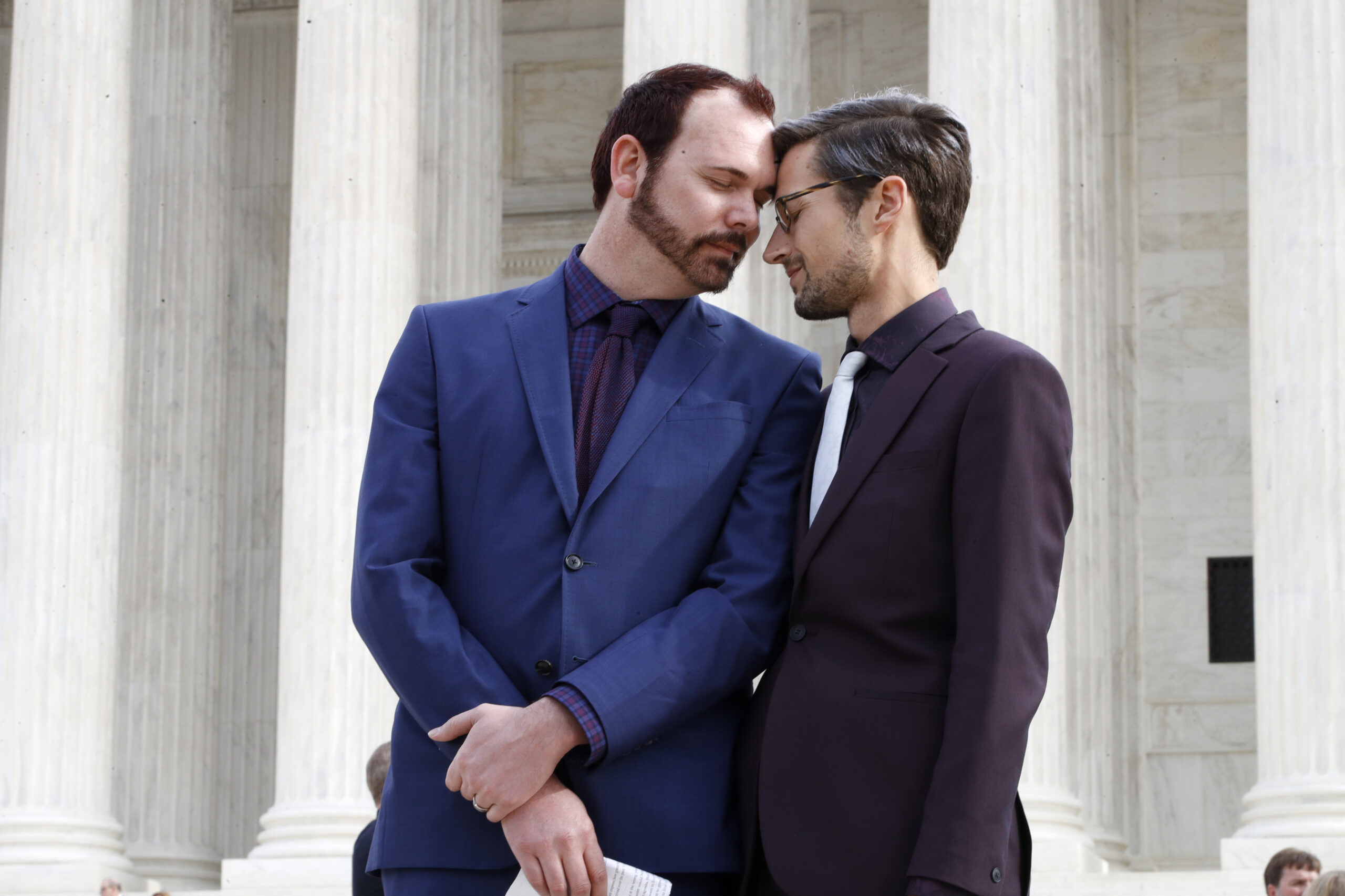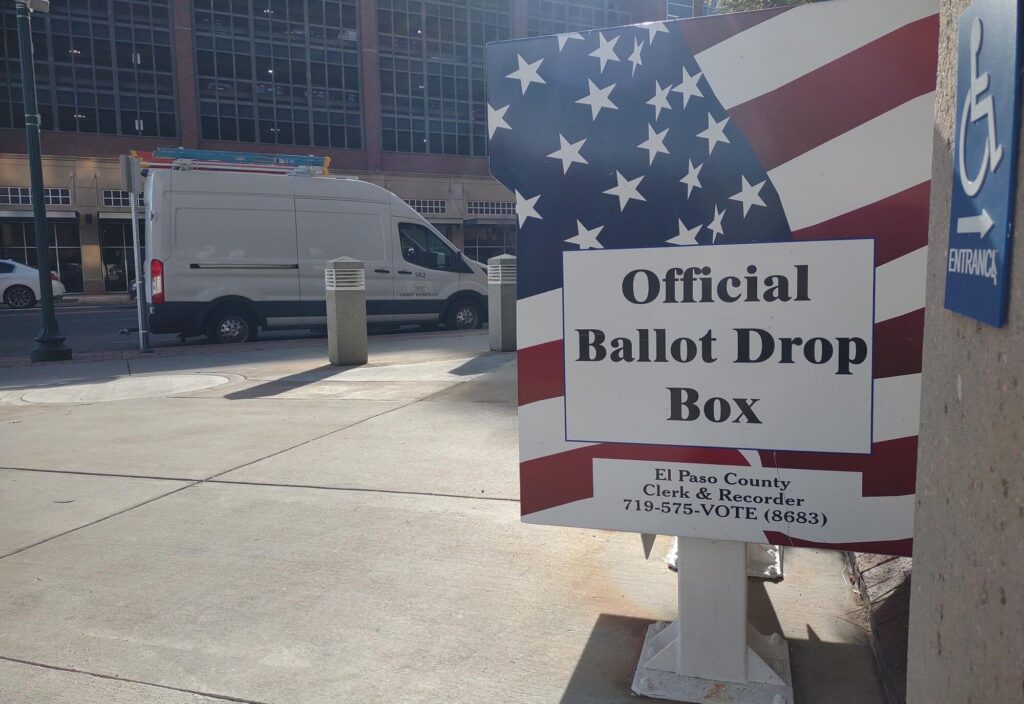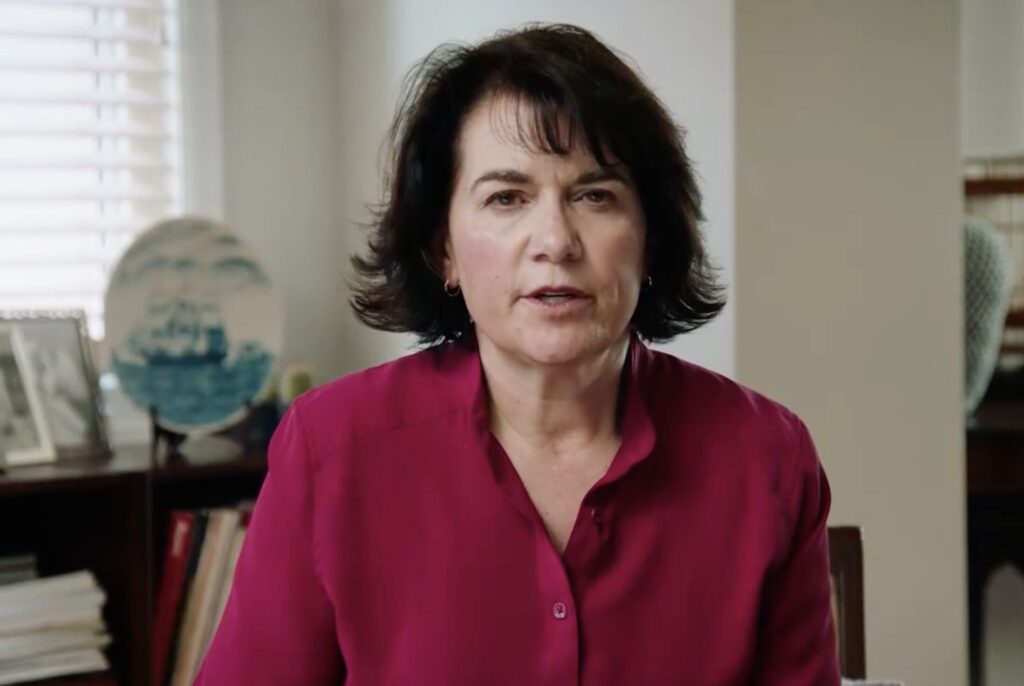Colorado’s Civil Rights Commission on shoals of bitter political divide

It was founded nearly 70 years ago, before the federal Civil Rights Act of 1964, and has its roots in an early state anti-discrimination law that dates back to 1895. But now the state’s Civil Rights Commission is facing major changes to its mandate and authority – thanks in large part to the Lakewood baker who refused, on religious grounds, to provide a cake for a same-sex couple.
Some Republican lawmakers have charged that the cake case shows that the commission holds an anti-business bias and are calling for major changes in the commission’s make-up and power. At the same time, however, they maintain they support civil rights and have no intention of making the commission or the division go away.
As the Colorado General Assembly takes up a bill that would preserve the commission and division following a “sunset review” – the process by which laws are renewed or allowed to expire – some of its most ardent backers have pointed to its history as the best reason to extend its life. The commission has been at the center of groundbreaking cases that have made Colorado a national leader in dealing with discrimination.
The division is primarily an investigative arm, while the commission reviews appeals to the division’s findings, and can vote on whether to refer a case to an administrative law judge (ALJ) for a formal hearing.
The Civil Rights Commission sided with the same-sex couple in its discrimination lawsuit against Masterpiece Cakeshop of Lakewood, sparking a legal fight that went to the Colorado Court of Appeals, which upheld the commission. That ruling was appealed and is now awaiting a decision from the U.S. Supreme Court.
Former State Sen. Penfield Tate, a well-known civil rights advocate, said the division was simply doing its job in the cake case. “When citizens complain about discrimination, the division investigates and they have the ability to bring the claim forward,” he said. “They’re simply doing what they’re empowered in statute to do.”
Colorado’s first anti-discrimination law came only 19 years after statehood – when the General Assembly passed its public accommodation act that prohibited discrimination on the basis of race or color.
In 1951, the first iteration of the Division of Civil Rights began as the “anti-discrimination division.” It was housed in the Industrial Relations Commission, now known as the Department of Labor and Employment. At that time, the anti-discrimination division had no compliance or enforcement powers. But it was groundbreaking. At the time, only two other states – New York and Wisconsin – had anything similar.
It’s been more than 60 years since lawmakers decided to make the division a full-fledged state agency, and charged the division and the new commission (still known as anti-discrimination) with enforcing the 1895 public accommodation act. Lawmakers also added interracial marriage as a protected class. Two years later, fair housing was added to the commission’s responsibilities.
“Civil rights” became part of the division and commission name in 1965. In 1969, sex was added as a protected class; physical disability was added in 1977 and age (years 40-70) was added in 1986.
Colorado’s early lead in setting up a state agency to deal with discrimination in housing, employment and public accommodations made it a leader in the civil rights movement, according to former director Wendell Pryor, who led the division from 2002 to 2007.
Brian Tobias manages the Office of Policy Research and Regulatory Reform, which conducted the sunset review. He told the House Judiciary Committee last month that someone who believes they have experienced discrimination has two options: To go to the division and make a complaint or to file a civil lawsuit.
If the division takes up the complaint, the only legal remedy it can offer is “equitable relief,” Tobias said, such as ordering the offending entity to undergo training or require it to put up posters. Civil suits have their own limitations: A fine of between $50 and $500, an amount set in the 1895 public accommodation law. That money goes to the state general fund, not to the victim or the division.
Contrast that with the duties of the commission, which has appellate and rule-making responsibilities, Tobias explained.
Steven Chavez, the division’s director from 2007 to 2014, said the commission has the authority to hold hearings, but doesn’t, instead preferring to forward the hearing request to the Office of Administrative Courts and the ALJs.
The commission can also direct the division to initiate complaints. That’s only happened twice in the commission’s recent history, but one case led to a landmark settlement regarding Native Americans.
In 2010, a Ute Mountain Ute woman showed up at a Cortez hospital, claiming she had been raped. The hospital told her to go to the Native American hospital at Shiprock, some 50 miles away, although she had no way to get there. According to the Denver Post, this was a persistent problem for area Native Americans. The hospital claimed it wasn’t getting reimbursed for those costs, which both sides acknowledged.
The commission started an investigation, working with the tribe’s attorney, former Colorado U.S. Attorney Troy Eid, and that led to a settlement with the hospital where it agreed to abide by anti-discrimination laws, train its employees on cultural sensitivity and to be monitored by the commission.
Another landmark case dealt with predatory lending in housing. The case involved Hispanic borrowers, some who couldn’t speak English, and a lender who tricked them into taking mortgages for which they should not have qualified. It forced some into foreclosure and eviction, according to a 2010 Denver Post report. One of the real estate agents in the transactions was sentenced to 31 years in jail, and the lender and other co-defendants were slapped with a $629,000 fine. Pryor told Colorado Politics that one of his interns literally stumbled onto the case in a Greeley parking lot.
Another precedent-setting case, Pryor said, involved a land surveyor who wanted to undergo a sex-change operation. He was fired when he told his employer, and sued. The case resulted in a broader interpretation of sex in employment to include gender.
Why it’s controversialLast month, the Joint Budget Committee deadlocked on funding, which means, as it stands, that funding will end for Colorado’s historic civil rights initiative on July 1.
The JBC can revisit that decision at any time, although they have not yet done so. JBC member and Republican Sen. Kevin Lundberg of Berthoud said in a Facebook post after the vote that he wanted to see what happened with the sunset process. Senate Republicans want changes in how commission members are appointed and to the commission’s decision-making authority.
The appointment issue comes from the 2017 legislative session, when Senate Republicans blocked the re-appointment of Heidi Hess, a West Slope field organizer for the LGBT-organization One Colorado. She was originally appointed in 2013, and re-appointed by Gov. John Hickenlooper in 2017, both times as an at-large member.
But Republicans objected to her reappointment, pointing to the commission website, which wrongly said she was a representative of small business. Republicans claimed Hess was anti-business.
The Senate rejected the Hess appointment on a party-line 17-18 vote. She stayed on the commission after the session ended, although she resigned later. That she remained on the commission irritated Republicans, including Senate President Kevin Grantham of Cañon City. He has introduced a bill this session that would mandate that once the Senate has rejected a nominee, that nominee can no longer serve.
But there’s more to the Hess story than just her reappointment. Hess was a member of the commission when it sided with the same-sex couple who filed the discrimination lawsuit against Masterpiece Cakeshop.
Hess has been wrongly credited with a statement from a July 2014 hearing on the case that some claim shows the commission has an anti-religion bias. According to a transcript, an unidentified speaker said “Freedom of religion and religion has been used to justify all kinds of discrimination throughout history, whether it be slavery, whether it be the holocaust…And to me it is one of the most despicable pieces of rhetoric that people can use to – to use their religion to hurt others.” That statement, which was attributed to Hess, made its way into legal briefs and was even read by Supreme Court Justice Anthony Kennedy in the Dec. 5 Supreme Court hearing, who asked if the commission was anti-religion.
But a recording of the hearing shows it wasn’t Hess who made that statement. According to several sources, including the right-wing website WorldNetDaily, the speaker was actually fellow Commissioner Diann Rice. The state Attorney General disavowed the comment during the Supreme Court hearing. But the remark started an uproar that led Democrats to claim the move to defund the commission was retaliation for the Masterpiece case.
Senate Majority Leader Chris Holbert of Parker denied that claim. “It’s up for its regular sunset (review) and we’re looking at what changes should be made,” he told Colorado Politics.
Relations with businessThe commission and division have gotten something of a bad rap from business. Tony Gagliardi, president of the Colorado chapter of the National Federation of Independent Business, said the commission and division viewpoint appears to be that “employers are guilty until proven innocent … We want a fair and impartial process.”
The bill to reauthorize the commission and division is awaiting a hearing from the House Judiciary Committee. The bill’s Senate sponsor, Republican Sen. Bob Gardner of Colorado Springs, said in a recent opinion piece published by Colorado Politics that “Republicans have heard from business groups and community leaders that the structure, membership, transparency, and accountability of the Commission are lacking…These are legitimate concerns raised by our constituents and it is our job to listen and respond to their concerns.”
The House Judiciary Committee held a hearing on whether to offer the sunset bill last month. The committee rejected, mostly on party-line votes, any efforts by House Republicans to amend the sunset bill, which is sponsored by Speaker of the House Crisanta Duran of Denver. The bill as introduced only authorizes the commission and division for another nine years. It includes none of the other recommendations made by the sunset review, such as upping the penalties for civil rights violations from the current $50 minimum to up to $5,000 for the first violation, $10,000 for the second and $25,000 for subsequent violations. Known as a “clean” bill, it was offered that way in hopes of easier passage through the Senate.
The authority to run a “clean” reauthorization bill, the first step in the process, passed the 11-member House Judiciary Committee on Feb. 20 with a near unanimous vote, including “yes” votes from all but one of the committee’s four Republicans.
Behind the scenes, as the bill awaits a hearing, the division and stakeholders have been meeting to work out amendments. Gagliardi said one would add two more members to the commission, and require those members to represent business, including small business. That would give business four representatives. Another change would strike the language that four members need to be from protected classes. Gagliardi believes that language is obsolete. “We don’t need that. The civil rights division should be impartial. That requirement is like telling a bank robber on trial that we’re going to put six bank robbers on the jury.”
Gagliardi is also hoping for an amendment that would make changes to a bill passed several years ago that allowed employees to sue in state court. At the time, Gagliardi said the law would declare open season on small businesses. The law allowed lawsuits against small business of less than 15 employees; he’s advocating for an amendment that would exempt businesses of five employees or less.
Another amendment proposed by Republicans is more problematic. That amendment would strike the commission’s authority on hearings and appeals, making its primary purpose only to conduct research and advise the governor and General Assembly on discrimination issues.
Such a change “would eviscerate the purpose of the commission,” said former division director Chavez.
Former division director Pryor indicated that such a change could cause problems in another area. The division and commission have a “workshare arrangement” with the federal Equal Employment Opportunity Commission and the federal Department of Housing and Urban Development on issues related to employment and housing discrimination. When a complaint shows up at both a federal and state agency, usually it’s the division that handles the complaint. “If you can resolve a complaint at the state level, it prevents further penalties at the federal level. You don’t want to make a federal case out of it,” he said.
Tate, the former state senator, writing in a newsletter, put it in the larger perspective: “The future of the Colorado Civil Rights Commission remains in question. What will it say to the world about Colorado if our legislature ends it?”
Colorado Politics thanks the staff of the Office of Legislative Legal Services for its research on the commission and division history.












